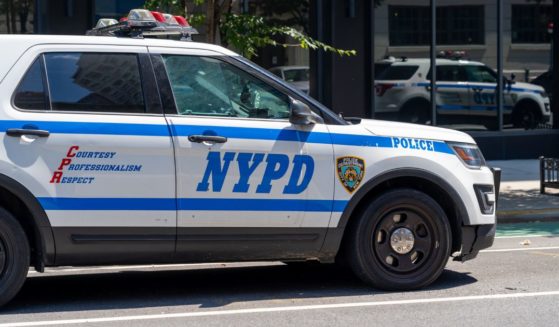Top Scientist Shuts Down J&J Vaccine Debate, Points to What Happens When You Start Taking Aspirin
It has become abundantly clear that public health officials have no idea how to talk to normal people.
While their academic jargon and bureaucratic procedures may be well-suited to a conference or day-to-day minutia, they are not conducive to effective messaging during a pandemic.
There is no better example of this phenomenon than the tomfoolery surrounding the one-shot Johnson & Johnson vaccine. On April 13, the Food and Drug Administration and the Centers for Disease Control and Prevention agreed to suspend the use of the Johnson & Johnson jab after six cases of blood clotting — among roughly 6.8 million total injections at that point in time — in women under fifty.
The so-called “pause” ended on Friday, and states were given the go-ahead to continue using the vaccine. However, the pause caused a dramatic decrease in confidence in the vaccine — a decrease of 15 percent, according to The Guardian.
So what’s the real risk of blood clots with the Johnson & Johnson vaccine? If you ask Dr. Francis Collins, the director of the National Institutes of Health, the vaccine is 1000 times less likely to cause intestinal bleeding than a specter found in nearly all of our medicine cabinets — aspirin.
“The risk of aspirin inducing a significant intestinal bleed is much higher” than any J&J vaccine risk, @NIHDirector Collins notes on MTP. It’s “in the neighborhood of one in 500, one in 1,000 for people who regularly take aspirin.”
Clots from J&J are “1,000 times less likely.”
— Will Saletan (@saletan) April 25, 2021
Collins expanded on this claim in a Sunday interview with Chuck Todd of NBC’s “Meet the Press.”
“All of us have been taking aspirin for headaches and muscle aches for the last many decades,” Collins said.
“The risk of aspirin inducing a significant intestinal bleed is much higher than what we’re talking about here, something in the neighborhood of one in 500, one in 1,000 for people who regularly take aspirin. We’re talking about something here that’s about 1,000 times less likely to happen.”
The benefits of the Johnson & Johnson vaccine, according to Collins, namely the prevention of COVID-19, severe COVID-19 and death from COVID-19, far outweigh any risks.
“But when you consider the nature of this risk [of blood clotting], this is truly a rare event. And when you measure that against the benefits of preventing somebody from dying of Covid, there’s no comparison. We clearly have a situation where the benefits greatly outweigh the risks, even for younger women,” he continued.
Immunologist John Charpentier has an even more straightforward outlook regarding the risks of the vaccine.
In a tweet, he calculated that one is “63,551 times more likely to die in a car crash, 2,267 times more likely to die from a lightning strike, [and] 78 times more likely to be killed by a dog… …than to die from a lethal blood clot induced by the J&J vaccine.”
In other words, you are:
63,551 times more likely to die in a car crash,
2,267 times more likely to die from a lightning strike, and
78 times more likely to be killed by a dog…
…than to die from a lethal blood clot induced by the J&J vaccine.
— John Charpentier, Ph.D. (@snpsandsnRNPs) April 13, 2021
Once again, it is clear that the government bungled this whole review process and gave Americans false ideas about the dangers of COVID-19 vaccines. What is often perceived as a massive risk is in fact a negligible one.
In contrast to most academics and public health officials (including Collins), I think Americans are more than capable of evaluating risk for themselves. However, in order to do so, we need the most transparent and detailed information possible, without the spin of political hacks or establishment media dogmatism.
If I hadn’t already received both doses of the Moderna vaccine, I would be more than happy to receive the Johnson & Johnson jab — just as I wouldn’t have any objection to using aspirin for a headache.
Bureaucrats need to learn how to stop shooting themselves in the foot. It would make the achievement of the common good much easier.
Truth and Accuracy
We are committed to truth and accuracy in all of our journalism. Read our editorial standards.












